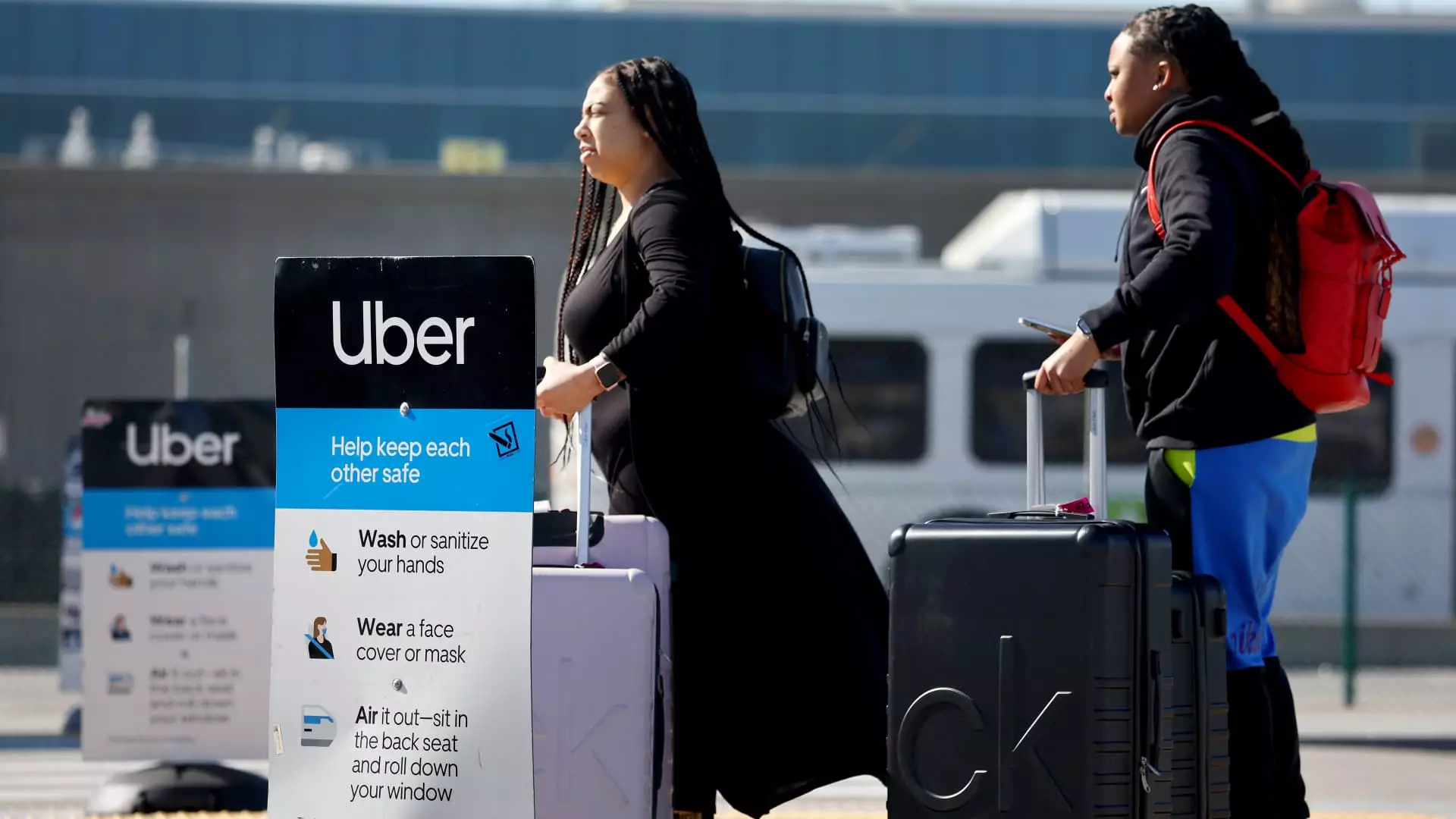In a strategic pivot that highlights the competitive landscape of the travel industry, Delta Air Lines has announced its transition from an eight-year partnership with Lyft to a new collaboration with Uber. This update, set to take effect this spring, is poised to bring significant benefits to Delta’s SkyMiles loyalty program members, who will be able to earn a range of mileage points based on their spending with Uber. The decision to ally with Uber signals a calculated move to enhance customer loyalty and provide value, especially in a post-pandemic travel resurgence.
New Dynamics in Customer Rewards
The new agreement allows Delta SkyMiles members to earn rewards at varying rates depending on their choice of Uber services. Riders using UberX to get to the airport will earn one SkyMile per dollar spent, while rides that offer more luxury options—like Uber Comfort or Uber Black—allow customers to accumulate two miles per dollar. For premium Uber Reserve trips, the rewards get even better, offering three miles for each dollar spent. This tiered earning structure not only incentivizes travelers to opt for higher-end rides but also encourages them to make Uber their go-to service for airport transfers.
In the realm of food delivery, SkyMiles members can also accrue miles through Uber Eats by simply ordering from restaurants and grocery stores, provided their order exceeds $40. This inclusion into everyday activities such as dining could appeal to travelers, enhancing the utility of the SkyMiles program beyond air travel.
Delta’s decision to partner with Uber rather than renew its relationship with Lyft can be seen as a strategic maneuver to align itself with a more dominant player in the ride-hailing sector. In terms of market presence, Uber significantly outstrips Lyft, boasting 161 million active users compared to Lyft’s 24.4 million. Moreover, Uber’s ability to integrate its services with various sectors—such as delivery and freight—adds layers of convenience and flexibility that cater to a wide array of customer needs.
Despite the end of the partnership with Lyft, Delta’s spokesperson acknowledged the past relationship’s contributions, suggesting that the airline is grateful for the accumulated benefits and customer loyalty that emerged from their collaboration. Transition communications are promised to ensure clients are informed as they move to the new rewards system.
Delta’s shift to Uber exemplifies a broader industry trend where airlines are intensifying their loyalty programs to drive increased customer engagement. Partnerships with major brands, including Starbucks, Hertz, and Ticketmaster, allow carriers to diversify the ways in which customers can earn and use their frequent flyer miles. As travel demand surges post-COVID, these loyalty initiatives have become pivotal in retaining existing customers and attracting new ones who seek a seamless travel experience.
Moreover, the partnership has financial implications beyond customer rewards. Delta’s arrangement with American Express, which also integrates Uber services, has projected revenue benefits estimated at around $7 billion for 2024. This figure underscores the intertwined nature of loyalty programs and financial growth in today’s airline industry.
Looking Towards the Future
As the announcement was made during the CES tech show in Las Vegas, it also reflects Delta’s commitment to innovation. The airline intends to roll out an AI-powered assistant in its app to enhance customer interaction and upgrade in-flight entertainment systems. Such initiatives indicate Delta’s strategic direction towards providing cutting-edge technology and maintaining a competitive edge within the industry.
By aligning with Uber and redefining its SkyMiles reward system, Delta Air Lines is not only responding to the market dynamics but also positioning itself for future growth in a highly competitive environment. As travel resumes its vigor, the stakes in loyalty programs have never been higher, ensuring that customers remain engaged and rewarded for their choices in transportation services. Delta’s move is a clear indication that the sky is not the limit for its ambitions, but rather just the beginning.

